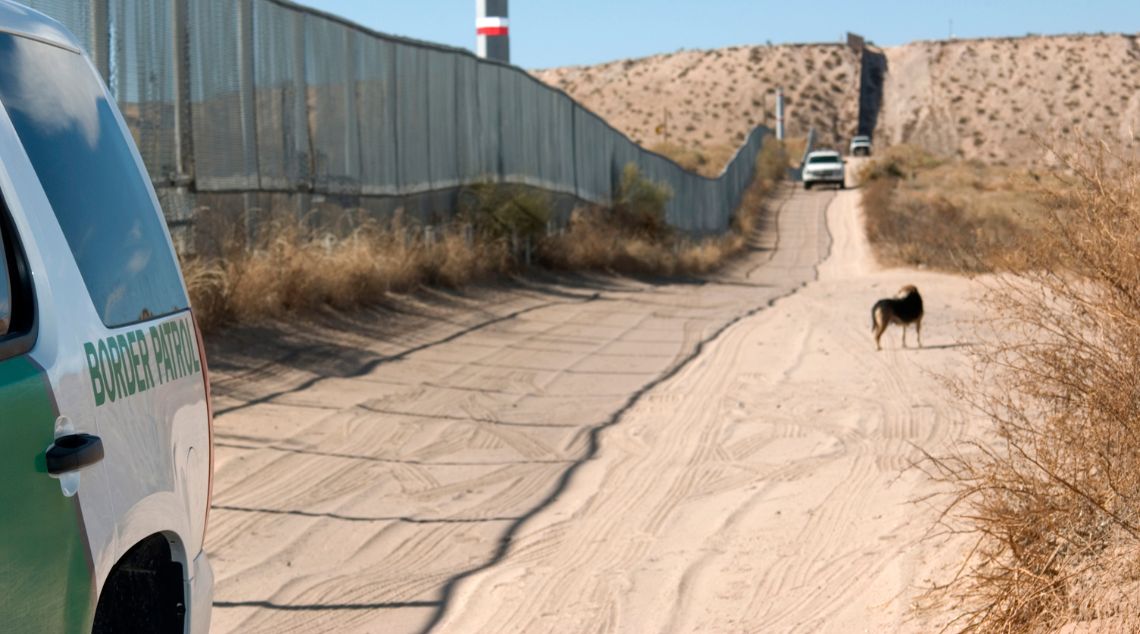In early May 2023, the U.S. Department of Defense (D.O.D.) announced they would soon deploy up to 1,500 active-duty troops to the country’s borders in Texas and Arizona – and especially around the town of El Paso.
These troops will supplement an existing 2,500-strong group of National Guardsmen who are currently assisting with the “migrant crisis” afflicting the region. With Title 42 legislation seeing its last few days, the boost in manpower appears necessary, as the amount of asylum-seekers at the border is set to multiply quickly.
Why Is El Paso In Need of Help?
Over the past year, law enforcement and social services near El Paso have been in a near-permanent “state of desperation.” Shelters and detention centers are all near capacity due to the steady rise of asylum seekers at the country’s southern border, which began in 2018.
Most of these migrants are “unprocessed” and “unsponsored” – there’s no official registration for many of them, and thousands are camping in the streets of many southern border towns. In El Paso alone, approximately 1,200 are “sleeping rough” and congregating around churches and transient camps.
The dire situation came with darker clouds on the horizon: on May 11th 2023, the controversial “Title 42” legislation was set to expire. This law, which was initially introduced at the start of the Covid-19 pandemic, allowed border agents to refuse entry to thousands of potential asylum seekers every day under public health grounds.
Many of those who were refused entry set up a temporary basis on the Mexican side of the border, awaiting its repeal. As of May 1st, there were approximately 150,000 people in refugee camps in Northern Mexico preparing to cross “as soon as possible.” In preparation for this “looming disaster,” the mayor of El Paso declared a state of emergency.
For police officers, immigration agents, aid workers, and shelter managers, it is clear that they need every bit of help they can get. But will the military be able to deliver the kind of assistance needed?
Deploying Military in El Paso – What Will They Do Exactly?

The U.S. Department of State has been quick to clarify one thing about the upcoming troops: they will be tasked solely with “non-law enforcement duties”. This means they won’t be directly interviewing migrants, making any arrests, or interacting with people currently under the custody of the Department of Homeland Security.
Instead, they will be assisting with ground-based detection, providing extra hands for data entry efforts, and helping with transport and warehouse support.
The extra hands are sorely needed: during the weeks following the expiration of Title 42, the number of (detected) illegal border crossings jumped from 1,000 to nearly 7,000 a day. However, it’s not just a matter of hands or of processing people quickly: many of these migrants have nothing to eat and no place to sleep.
The city of El Paso’s shelters are already at full capacity. As hunger turns into desperation, there is a very real fear that they will “turn to stealing,” said Pastor Timothy Perea, whose parish runs a church-sponsored soup kitchen for migrants.
Are Civil Liberties Being Sacrificed in the Name of Security?
There’s a reason why the D.O.D. was so quick to point out that the troops will only assist in “non-law enforcement” activities: otherwise, the move would anger civil liberties groups, and would go against many of the principles that the nation is founded upon.
In particular, the use of military personnel for internal law enforcement would be a direct affront to the Posse Comitatus Act. Ultimately, the military is trained to deal with different, much more dangerous situations – and their hard-trained reflexes may be wholly inappropriate to deal with American civilians.
According to the Brennan Center for Justice, the use of military personnel to deal with a humanitarian crisis will stigmatize migrants. People seeking asylum will be painted as foreign invaders, and the aid workers assisting them may face backlash from “aiding the enemy”.










